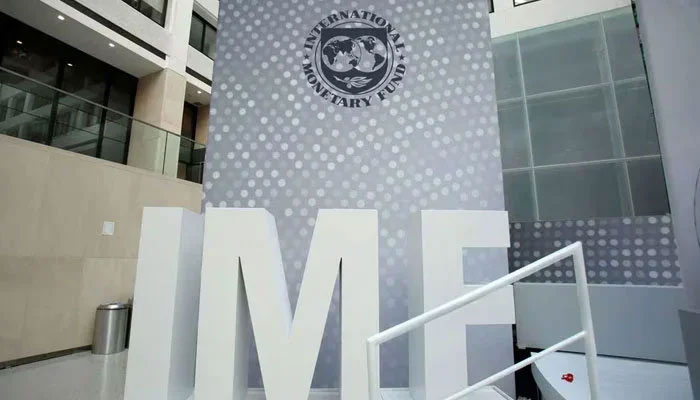Pakistan needs investment-led growth to break IMF loan cycle
LAHORE: Pakistan must reduce its reliance on International Monetary Fund (IMF) loans and prioritise investment-driven growth. Structural reforms in taxation, governance and business facilitation are essential to attracting investors and ensuring sustainable economic progress.
Given the current economic challenges, Pakistan has little choice but to seek IMF assistance as a lender of last resort. The country’s repeated engagement with the IMF stems from chronic fiscal and external account imbalances. While IMF programmes provide short-term financial relief and help prevent sovereign default, they come with strict conditions, including subsidy cuts, higher taxes and reduced government spending -- measures that often slow economic growth in the short term. However, without fundamental reforms, Pakistan remains stuck in a cycle of borrowing and crisis management, rather than achieving real economic stability.
A major issue is that most of Pakistan’s borrowing is directed towards budgetary support rather than productive investments. A significant portion of new loans is used to repay old debts, further increasing the overall debt burden. Borrowed funds are spent on financing fiscal deficits, importing essential commodities such as fuel and food, and providing subsidies. A large share is also allocated to government operations, while defence spending continues to rise due to ongoing security challenges.
Since these loans are not invested in productive sectors -- such as infrastructure, industry, or export-oriented projects -- they fail to generate sufficient returns to pay for themselves, deepening Pakistan’s dependence on external debt.
Sustainable economic growth hinges on investment, not borrowing. While loans can provide short-term stability, long-term prosperity requires foreign direct investment (FDI). Pakistan must convince multinational companies to invest by leveraging its strategic location as a trade corridor for landlocked neighbouring countries. However, even domestic investors have put expansion plans on hold due to economic uncertainty. Local investors should be given the same facilitation and incentives as foreign investors to restore confidence in the business environment.
One of the biggest obstacles to investment is Pakistan’s infrastructure deficit. The government must develop bankable infrastructure projects in collaboration with the private sector. Industrial growth will naturally follow if infrastructure gaps are addressed.
Investment drives job creation, technology transfer, export growth, and improved productivity -- factors missing in Pakistan’s debt-reliant economy. However, attracting investment depends on economic stability, investor confidence, and a business-friendly environment. Political instability remains a key deterrent, as investors typically avoid uncertain markets. Although security conditions have improved, lingering concerns still impact investor sentiment.
Policy inconsistency is another major challenge. Frequent changes in tax policies, sudden bans, and unclear regulations deter investment. Power shortages and weak logistics infrastructure hinder business operations, while weak enforcement of rule of law and inadequate protection of investor rights further discourage investment.
Despite these challenges, Pakistan still holds significant investment potential. If properly managed, the China-Pakistan Economic Corridor (CPEC) and Chinese investments could boost infrastructure and industrialisation. Gulf and Middle Eastern countries, including Saudi Arabia, the UAE, and Qatar, have shown interest in Pakistan’s energy, mining and agriculture sectors.
Furthermore, Pakistan’s young population presents a major opportunity for growth in the technology and IT sectors. Software exports and startups have been expanding at over 25 per cent annually over the past two years, despite minimal government support and slow internet services. With the right policies and a stable investment climate, Pakistan can shift towards an investment-driven economic model and break free from its reliance on external loans.
-
 Fresh Details Of King Charles, Queen Camilla's US Visit Emerge Amid Andrew Investigation
Fresh Details Of King Charles, Queen Camilla's US Visit Emerge Amid Andrew Investigation -
 Iran 'set To Buy' Chinese Carrier-killer Missiles As US Forces Gather In Region
Iran 'set To Buy' Chinese Carrier-killer Missiles As US Forces Gather In Region -
 Prince Harry And Meghan Unlikely To Meet Royals In Jordan
Prince Harry And Meghan Unlikely To Meet Royals In Jordan -
 Hero Fiennes Tiffin Shares Life-changing Advice He Received From Henry Cavill
Hero Fiennes Tiffin Shares Life-changing Advice He Received From Henry Cavill -
 Savannah Guthrie's Fans Receive Disappointing News
Savannah Guthrie's Fans Receive Disappointing News -
 Prince William Steps Out For First Solo Outing After Andrew's Arrest
Prince William Steps Out For First Solo Outing After Andrew's Arrest -
 Jake Paul Chooses Silence As Van Damme Once Again Challenges Him To Fight
Jake Paul Chooses Silence As Van Damme Once Again Challenges Him To Fight -
 Google Disrupts Chinese-linked Hacking Groups Behind Global Cyber Attacks
Google Disrupts Chinese-linked Hacking Groups Behind Global Cyber Attacks -
 Four People Killed In Stabbing Rampage At Washington Home
Four People Killed In Stabbing Rampage At Washington Home -
 Meghan Pushes Prince Harry Into Territory That’s Dangerous To His Brand: ‘She Isn’t Hearing A Word Of It’
Meghan Pushes Prince Harry Into Territory That’s Dangerous To His Brand: ‘She Isn’t Hearing A Word Of It’ -
 Christina Applegate Reflects On Lasting Impact Of Being Molested In Childhood
Christina Applegate Reflects On Lasting Impact Of Being Molested In Childhood -
 Martin Short Makes Big Decision Following Tragic Death Of Daughter
Martin Short Makes Big Decision Following Tragic Death Of Daughter -
 Antarctica’s Mysterious ‘gravity Hole’: What’s Behind The Evolution Of Earth’s Deep Interior?
Antarctica’s Mysterious ‘gravity Hole’: What’s Behind The Evolution Of Earth’s Deep Interior? -
 Hilary Duff Addresses Ashley Tisdale's 'toxic Mom Group' Claims And Matthew Koma's Firey Response
Hilary Duff Addresses Ashley Tisdale's 'toxic Mom Group' Claims And Matthew Koma's Firey Response -
 Jack Hughes's Proximity To Trump Angers Tate McRae Fans
Jack Hughes's Proximity To Trump Angers Tate McRae Fans -
 Neve Campbell Opens Up About Her 'difficult Decision' To Not Sign 'Scream 6'
Neve Campbell Opens Up About Her 'difficult Decision' To Not Sign 'Scream 6'




